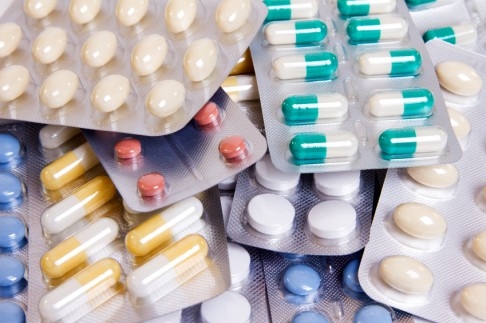
Secret trade negotiations, new details of which have been released by WikiLeaks, will undermine Australia’s Pharmaceutical Benefits Scheme, and push up the cost of medicines for the Australian public.
In the latest of a series of high profile leaks, WikiLeaks has published more draft treaty text from the controversial Trans Pacific Partnership (TPP) negotiations which the Abbott government claims will boost trade and investment across 40 per cent of the world economy.
Trade and healthcare experts are deeply concerned that the TPP agreement has the potential to undermine Australia’s Pharmaceutical Benefits Scheme (PBS) and other similar health programs such as that administered by New Zealand’s Pharmaceutical Management Agency.
They say TPP countries will face a much greater risk that big pharmaceutical companies will contest government decisions relating to the listing or otherwise of medicines for reimbursement and engage in expensive litigation, with the result that consumers will pay more while corporate profits will be protected.
The newly disclosed TPP draft annex sets out the potential obligations of member countries in relation to the listing of pharmaceuticals and medical devices for reimbursement under national health care programs including Australia’s PBS.
The text has been hotly contested in the TPP negotiations as United States trade negotiators have aggressively pushed for provisions favouring multinational pharmaceutical manufacturers at the expense of national governments and public healthcare systems.
The newly disclosed draft annex, dated December 2014, is an advanced draft much changed from a previously leaked US proposal and appears largely based on compromise text developed by Australia and Japan in consultation with the United States.
Dr Deborah Gleeson, an expert in international trade and public health policy at La Trobe University, said that while the draft annex was “significantly watered down” from earlier US proposals, the new text was “clearly intended to cater to the interests of the pharmaceutical industry”.
“[The draft text] tightly specifies the operation of countries’ schemes for subsidising pharmaceuticals and medical devices with the aim of providing greater disclosure, more avenues for pharmaceutical industry influence and greater opportunities for industry contestation of pharmaceutical decision-making,” Dr Gleeson said.
“It sets a terrible precedent for using regional trade deals to tamper with other countries’ health systems and could circumscribe the options available to developing countries seeking to introduce pharmaceutical coverage programs in future.”
In March, following an earlier WikiLeaks expose of the TPP negotiations, Trade Minister Andrew Robb said that he was subject to a cabinet instruction to protect Australian health interests including the PBS: “We’re not going to accept any outcome which would adversely affect our health system, end of story.”
A spokesman for Mr Robb said that his previous comment “of course still stands”, but did not reveal what measures the government is insisting on to protect the PBS as the long-running negotiations move towards a conclusion.
Dr Gleeson said major problems remaining with the leaked draft annex include a consultation mechanism that could be used to apply pressure to countries to make changes to their pharmaceutical programs in the interests of companies and reference to an investor-state dispute settlement (ISDS) mechanism that would allow multinational corporations to sue countries over their pharmaceutical policies.
“The recent leak of the TPP Investment Chapter shows that the Australian government is seeking to carve out the Pharmaceutical Benefits Scheme from ISDS, along with the Medicare Benefits Scheme, the Therapeutic Goods Administration and the Office of the Gene Technology Regulator,” Dr Gleeson said. “However, the carve-out appears in brackets, indicating that other countries have not yet agreed.”
Australian National University associate professor of law Matthew Rimmer said WikiLeaks’ publication of the draft annex would be welcomed by public health advocates.
“The annex highlights the great influence of Big Pharma in the debate over the TPP,” Dr Rimmer said. “Big pharmaceutical companies will use procedural rules to bully countries in the Pacific Rim to roll back their public health regimes.”
WikiLeaks has published a series of leaks on the TPP negotiations and equally important Trade in Services Agreement (TiSA) and the Transatlantic Trade and Investment Partnership (TTIP).
WikiLeaks publisher Julian Assange said the TPP, TiSA and TTIP amounted to “a grand unified treaty, partitioning the world into the US and its allies versus the rest, specifically China”.
“This great treaty is taking shape in complete secrecy, because along with its geostrategic ambitions it locks into place a bold new form of transnational corporatism overseen by US-controlled arbitration courts for which there is little public support,” Mr Assange said.
Trade officials from the US and 11 other Pacific Rim nations are expected to conclude the TPP negotiations in the next few months.
Mr Robb said it was “disappointing that critics of the agreement deliberately ignore the benefits that will inevitably flow as a result of a more seamless trade and investment environment across 12 countries representing 40 per cent of global GDP”.
The leaked TPP document can be found at wikileaks.org.
Source: The Age
